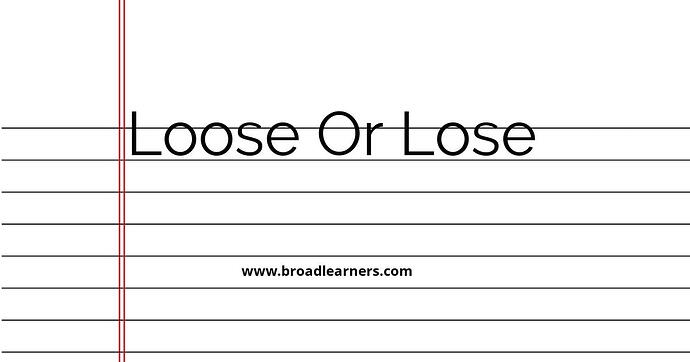'Loose' and 'lose' are commonly confused words in English grammar. Understanding the difference between 'loose' and 'lose' is important to use them correctly in written and spoken English.
'Loose' is an adjective that means not tight or not firmly fixed in place. It is used to describe something that is not held tightly or securely.
'Lose' is a verb that means to be deprived of or to fail to keep possession of something. It is used to indicate the opposite of winning or finding something.
Let's take a closer look at the meanings and usage of 'loose' and 'lose'.
| 'Loose' | 'Lose' |
|---|---|
| The word 'loose' is an adjective that means not tight or not firmly fixed in place. | The word 'lose' is a verb that means to be deprived of or to fail to keep possession of something. |
|
|
To remember the difference between 'loose' and 'lose', it can be helpful to remember that 'loose' has two 'o's, which can represent the two parts of something not being tightly held together. On the other hand, 'lose' has only one 'o', indicating the act of losing or misplacing something.
Here are some examples of correct usage:
- My pants are too loose. (describing the fit of clothing)
- I don't want to lose my phone. (indicating the fear of misplacing or being deprived of possession of something)
- The team lost the game. (referring to failing to win)
- I lost my wallet and had to cancel my credit cards. (referring to misplacing or being unable to find something)
Remembering the correct usage of 'loose' and 'lose' will improve your grammar and communication skills.
